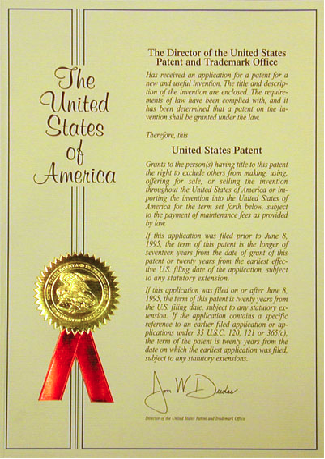
What is a patent?
A patent is an intellectual property right granted by the U.S. Patent and Trademark Office (“USPTO”) that gives a patent owner the right “to exclude others from making, using, offering for sale, or selling the invention throughout the United States or importing the invention into the United States” for a limited time in exchange for public disclosure of the invention when the patent is granted. The “invention” is set forth by a patent’s “claims” and individual claims of a patent or patent application may be challenged.
Basic information about patents and the process of applying for a patent can be found on the USPTO’s Inventor’s Resources webpage. Also you may find this video from the Federal Judicial Center helpful in explaining patents and the patenting process.
How do I find out how long the patent will be in force?
In general, patents can stay in force for up to 20 years from the time of filing although the actual length of a patent’s life can vary depending on a variety of factors. More information about patent term, and an explanation of how to estimate whether a patent has expired, is available on the Patent Term Calculator webpage.
What if the patent is expired?
Even if a patent is expired, the patent owner has six years from the expiration date to file a lawsuit in order to collect monetary damages for past infringement before the expiration date. Also, note that the claims of a patent can be invalidated by federal courts and/or the USPTO prior to their expiration, but not afterwards.
 Indiana Intellectual Property Law News
Indiana Intellectual Property Law News

